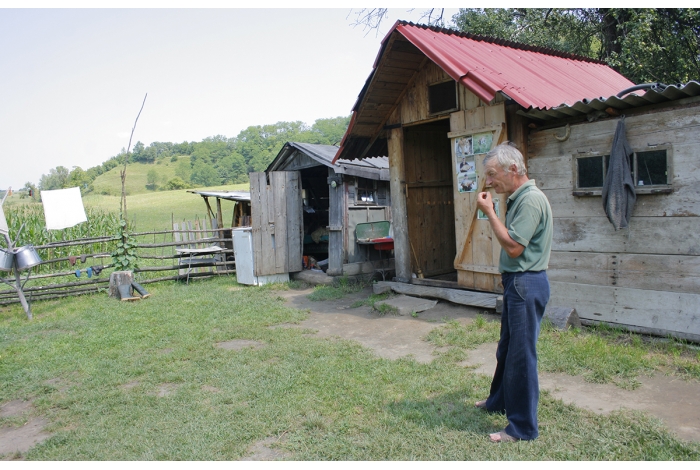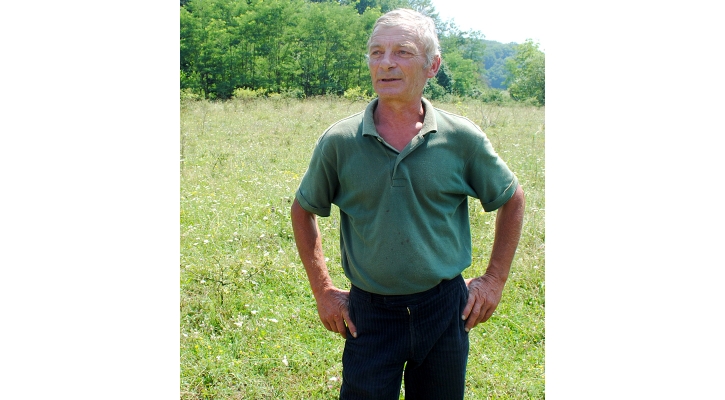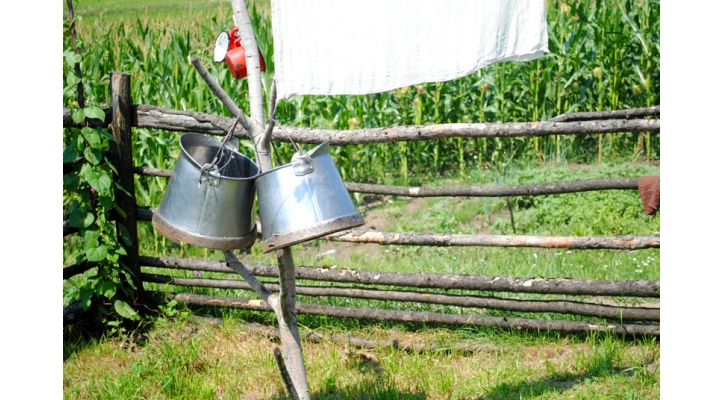Modern Shepherding with Ioan Badea
Sheep have always played a leading role in rural Romanian life, and the work of a shepherd is becoming increasingly underrated and even forgotten about with all the surrounding modernization.

Ioan Badea
Many of the milk and cheese products found at local markets and food stores, as well as clothing derived from wool, trace their origins to this fluffy creature. The life of a shepherd is arduous, but rewarding, and not suitable for all. Passion is the main force motivating these people to work long hours day after day, as Ioan Badea, a shepherd living outside of Biertan, will reveal in the following interview. Wearing dress pants and an elegant looking shirt, he looked a bit out of place on a farm. Adding to this strange first impression was the sight of a large solar panel, attached to a multitude of wires: Ioan was obviously not a common shepherd.
-How long has shepherding been in your family?
Around three or four generations. It has always been a part of my life, ever since I was a child. However, I’m unsure about what will happen in the future with regards to this farm. Many other shepherds go to western countries in search of better conditions and higher salaries. My childhood was spent in various places, including cities such as Brasov and Sibiu, where I studied forest exploitation in university. Now I live and work in Biertan and have been here for several decades.
-How important is shepherding to the Romanian culture?
It is an essential part of it. For the people around here, it has always been central to their lives, a habit which they grew up with and which they will pass down to future generations. For me, sheep are not just animals, they are companions for life. A special bond is created with them after spending so much time with them, especially when travelling hundreds of kilometers only with the flock. This is done to find new and better land for grazing. In my opinion, this is the most enjoyable aspect of the job as it is so laid-back and all I have to worry about is finding a big enough tree to nap under.
-Do you sell the products from your farm?
Yes. I can sell lamb’s meat and wool to markets because they last for a long time. Other products, such as the milk and cheese, I mostly keep for myself. Local villagers from Biertan often come to buy from me and sometimes as much as 50 kilograms at once! 2010 was a tough year though, because Easter came earlier than usual, which meant that the demand for lamb came at a time when there was not enough lamb meat yet.
-What is your typical day like?
Usually full of physical work. The sheep have to be milked twice a day, once in the morning, at around 5, and once in the afternoon, at around 4. In addition to this, there are lots of other jobs around the farm that need to be done. My lifestyle at the moment is very different from that of a travelling shepherd, whose daily life is filled with adventure.
-Finally, what do you love most about being a shepherd?
Being a shepherd means being around the animals that I love. When I was younger, I used to work as a blacksmith in the city, but it wasn’t my place and I just didn’t enjoy the work. I resented being a slave to modernity and having to work for low wages doing something I didn’t even like.
Text: Harri Narhi
Photos: Ana A. Negru





